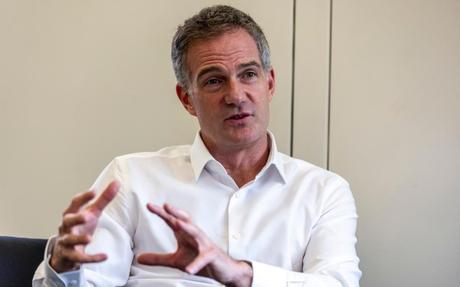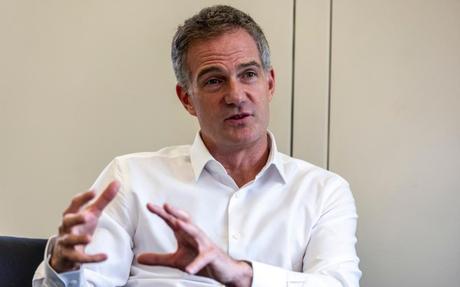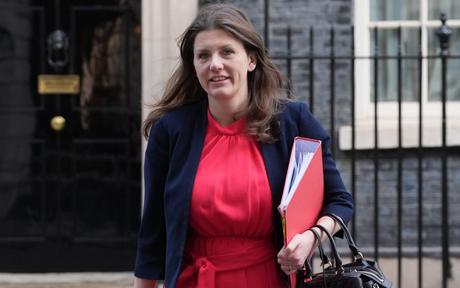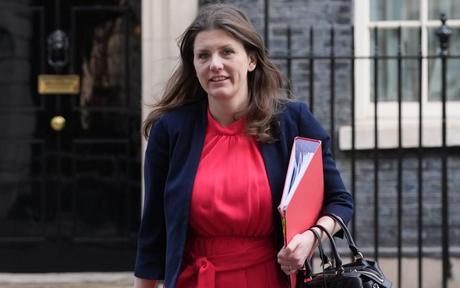Labor has promised to tear up restrictive planning rules and build more labs, despite Nimby complaining they could spoil opinions.
Scientific real estate, like the housing market, is in the midst of a serious supply problem, with research hampered by a shortage of laboratory space and other key infrastructure.
Peter Kyle, the shadow secretary of state for science, innovation and technology, said excessive red tape was a "huge barrier" to the success of British science.
He promised that if Labor wins the next general election he will reform planning rules to make it easier for businesses to access vital laboratory space for key research and development.
"Labor will support our scientists and not the blockers of new labs. Our planning reform will build the economy of the future," Kyle said, speaking exclusively to The Telegraph in his corner office at Portcullis House, overlooking the Thames.
"We have a desperate need for labs, we have a desperate need for computing power and we have a desperate need for cloud computing infrastructure. All of these things are currently being held back by the planning system.
"Under Labor, if you are a company that needs lab space, computing power or cloud computing, you have a government and a foreign secretary working with you to make sure you get it as quickly as possible."
It comes at a time when Labor is in the midst of a pro-housing campaign to help the country win a large majority and enable the country to build on the green belt.
The party is reportedly prioritizing dozens of seats where voters build homes as a key issue to boost its electoral prospects, and Kyle hopes to use this public sentiment to expand the science sector as well.
Mr Kyle is hoping to avoid debacles such as blocking a "nationally important" data center being built near the M25 because it will spoil the view from a pedestrian bridge over the country's busiest motorway.


Mr Kyle says key projects that meet Labour's four industrial missions - delivering clean energy by 2030, harnessing data for the public good, caring for the future and building a more resilient economy - are moving quickly past planning roadblocks will be guided regardless of whether they are corrupted. views or unaesthetic buildings.
The story continues
Both Labor and the Conservatives want to translate Britain's leading research skills into economic output, and hope that encouraging and facilitating a more entrepreneurial spirit among academics is the solution.
But it is difficult to make university spin-offs commercially viable, and a lack of laboratory space is crippling businesses before they get started as councilors and residents thwart planning applications.
Statistics from estate agent Bidwells show there was an 80,000 sq ft shortage of laboratory space last year, and rents have risen by more than a quarter in the past two years.
Meanwhile, research by British Land shows that there is ten times as much laboratory space in the American city of Boston as in Oxford, Cambridge and London combined.
According to a survey by the Campaign for Science and Engineering (CaSE), two-thirds of people are in favor of building a laboratory in their area. Labs are as popular as new schools or wind farms, data shows, because they create good-paying jobs and boost the economy.
Clear opportunities for all parties
Rebecca Hill, advocacy and engagement manager at CaSE, said: "The public not only supports local R&D developments, but also sees them as an asset to their community. There is a clear opportunity for politicians of all parties to build on that public interest."
Mr Kyle plans to monetize this and is aiming to add more than £72 billion to the coffers by deploying digital technology across the economy.
Stability, he says, is key to this, because science is a slow process and therefore particularly vulnerable to the frenzy of modern politics. Instability, he says, has meant that the Conservative regime has failed to deliver on its promise to make Britain a 'scientific superpower', leaving scientists in Britain in a worse position than their European and global colleagues.
Britain left Europe's flagship programme, Horizon, in the wake of Brexit, only to rejoin as an associate member last year and allow the government to claim victory.
Britain is also only an associate member of Euratom and is no longer part of the Erasmus exchange programme, and scientists are deterred from working in Britain due to high visa costs and strict immigration laws.
"We need a government that looks to the 2030s and beyond and seizes the opportunities that come our way - not one that is always looking back and trying to replace something they carelessly lost," Kyle said.


He blames the chaos and resulting scientific obstacles in the country on his counterpart, Michelle Donelan, the Science Minister.
Ms Donelan recently used £15,000 of taxpayers' money to settle a defamation claim after accusing a British scientist of being a Hamas sympathizer.
Officials worked until midnight on her instructions on Friday evening on the defamatory letter, which was posted on Ms Donelan's personal Twitter account.
Mr Kyle accused Ms Donelan of "chasing a phantom threat" rather than focusing on the task at hand, adding that dysfunction "not only generates the headlines and excitement of everyday politics, but also has a profound impact on the economic health of our nation on the frontlines. line".
"This merry-go-round of announcements, followed by underperformance, followed by cancellations, followed by new announcements, has to stop."
Labor hopes the NHS can be the standard-bearer for innovation, with a plan to remove the many layers of bureaucracy and siloism that have fostered a systemic inability to adopt technological improvements at scale.
His close working relationship with Wes Streeting, the shadow health secretary, with whom he shares an office, culminated in the co-signature of Labour's Life Sciences Strategy, which promises to use the health service's vast data to 'lead the world in field of clinical sciences'. trials".
Mr Kyle hopes to accelerate the deployment of technology across the country to end postcode lotteries caused by individual trusts deciding which new technology and systems to use.
"The NHS has improved quite a bit when it comes to clinical trials," he said. "The problem comes at the next step, namely once that innovation has been proven.
"The NHS is terrible at spreading that innovation across the NHS, for the good of all patients."


